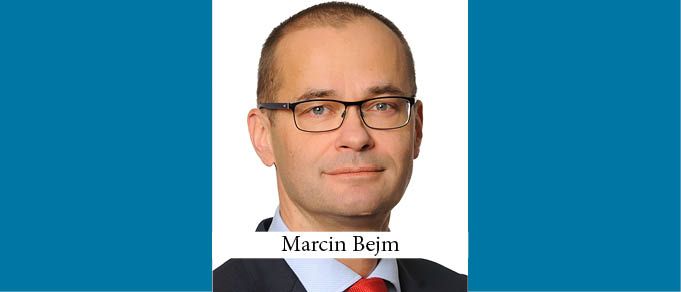In December 2017, CMS published the latest edition of its annual “Infrastructure Index” report, which compares the political, economic, and legal environments for investors in infrastructure in 40 countries and constitutes a guide to the world’s most attractive destinations for infrastructure investment. According to the report, the five most attractive destinations for infrastructure investment are the Netherlands, Canada, Germany, the United Kingdom, and Australia.
Poland, which debuted in the ranking this year, placed seventeenth. Given the forthcoming pipeline of infrastructure projects in Poland and the planned changes in the legal and tax framework for public-private partnerships, Poland should easily improve its position in the next CMS Infrastructure Index rating.
Poland is currently experiencing significant economic growth, which translates into dynamic infrastructure development. In 2017, the Council of Ministers adopted the revised “Program Regarding the Construction of National Roads,” which envisages that by 2023 the State Treasury will spend approximately EUR 50 billion on investments related to new motorways, expressways, and public roads. In the same period, PKP Polskie Linie Kolejowe, the state-owned operator of Poland’s public railway network, will invest approximately EUR 17 billion in the modernization of the existing railway network. Moreover, Poland is planning to launch infrastructure mega projects such as the construction of the Central Transportation Hub (consisting of a new central airport for Poland and auxiliary transportation infrastructure, expected to cost a total of approximately EUR 8 billion), the development of a new system of inland waterways covering the Vistula River and the Odra River expected to cost approximately EUR 7 billion, and the construction of a new central sea port for Poland in Gdansk, which will require investment outlays of approximately EUR 1.5 billion. These projects will most likely be implemented as PPPs.
Soon, Poland will also see the advent of new infrastructure markets concerning e-mobility investments, energy storage, and digital infrastructure. In January, the Polish parliament adopted the Act on E-mobility. The Act opens the door for local governments to implement projects consisting of the construction of electric charging stations based on a concession formula. In addition to constructing thousands of electric charging stations, the development of the e-mobility market will also force energy distributors to refurbish MV power lines supplying electricity to the charging stations.
Despite huge investments in the transportation sectors and an explosion of e-mobility investments, during the next three years the infrastructure market in Poland should be dominated by PPP projects. In 2017, the Council of Ministers adopted the “Government Policy for the Development of Public-Private Partnerships,” with a view to increasing the scale and efficiency of infrastructure investments implemented as PPPs in Poland. For the first time, the Polish government officially declared that PPPs should be treated as an instrument for implementing the national development policy. Recently, the Ministry of Development published a list of PPP projects that are currently in the pipeline. 17 projects from the list will have a capex value exceeding EUR 90 million. This group of the biggest PPP projects consists of seven projects which are to be carried out in the road sector, three urban regeneration projects, two projects involving inland water infrastructure, and two waste management infrastructure investment projects.
The Ministry of Development has been assigned the role of a PPP taskforce and will be coordinating initiatives aimed at the development of the PPP market in Poland. The government is attempting to boost PPP market growth by providing system support in relation to all pending PPP projects. The Ministry has already outsourced advisory services for five PPP projects prepared by local government units.
On March 8, the government sent a bill concerning amendments to the PPP Act to parliament. The bill envisages that public entities wishing to implement infrastructure projects with a value exceeding EUR 75 million should do this under the PPP formula unless they prove that implementation without a private partner’s participation is more advantageous for the public sector. The bill also regulates issues connected with the execution of step-in rights by lenders. Furthermore, the amendment cancels the existing limits on maximum parking fees for parking cars in city centers, which eliminates the basic barrier that has been blocking the development of PPP projects in the car parking sector.
All these developments will surely change the infrastructure market in Poland over the next two to three years. For the first time, the future seems particularly bright for PPPs in Poland.
By Marcin Bejm, Partner, CMS
This Article was originally published in Issue 5.3 of the CEE Legal Matters Magazine. If you would like to receive a hard copy of the magazine, you can subscribe here.


